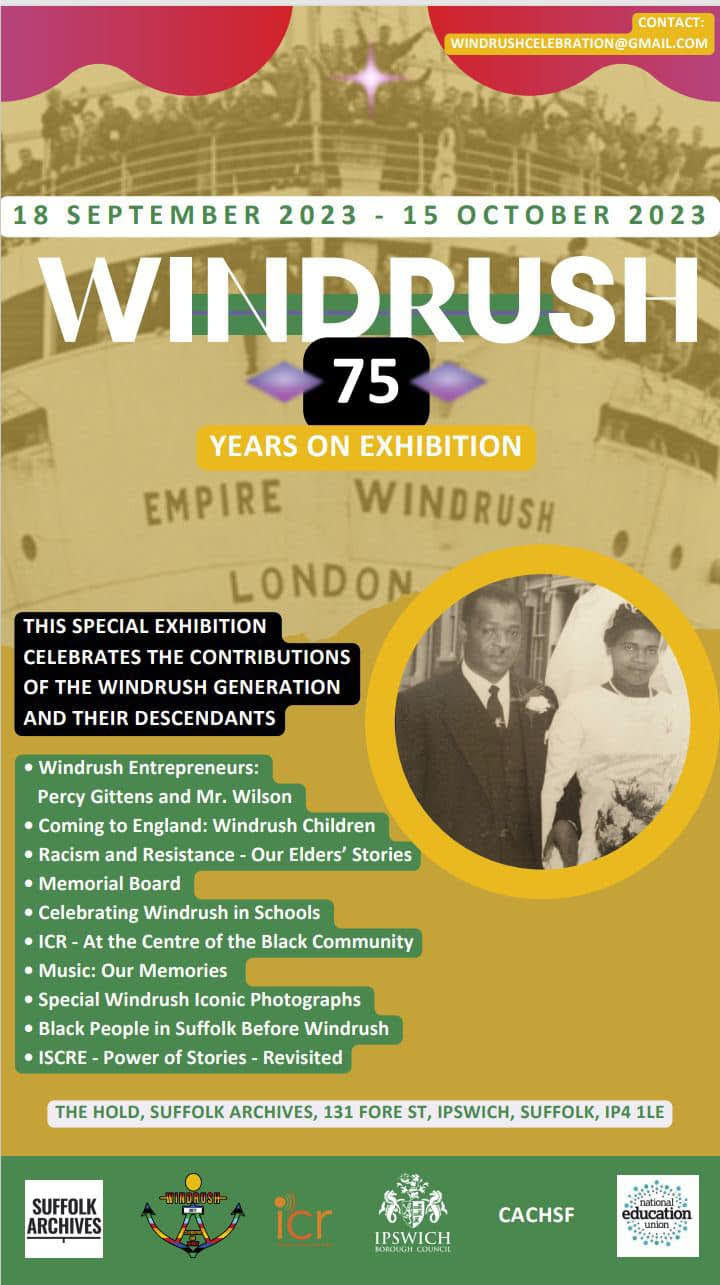
Seventy-five years ago, in 1948, the HMT Empire Windrush sailed into the port of Tilbury, marking a historic moment in British history. On board were approximately 500 passengers, predominantly from Caribbean countries, who had responded to Britain's call for help in post-war reconstruction efforts and labour shortages. Little did they know that they would become an integral part of the country's social, cultural, and economic fabric.
This significant event marked the beginning of what is now known as the Windrush Generation, named after the ship that brought them to British shores and they came to the UK to build better lives for themselves and their families.

In the decades that followed, Caribbean migrants played pivotal roles in the transformation of Britain. Notable figures from the Windrush Generation have left an unforgettable mark on British society.

Dame Jocelyn Anita Barrow DBE (1929 – 2020)
Jocelyn Barrow was born in Trinidad and Tobago and travelled to the UK in 1959 to study a postgraduate degree at University of London. She was one of the founders of the Campaign Against Racial Discrimination, and her work has encompassed broadcast, healthcare and housing. She was the first black woman to be a governor of the British Broadcasting Corporation (BBC) and was founder and Deputy Chair of the Broadcasting Standards Council.

Jah Shaka, also known as the Zulu Warrior, (1948 – April 2023)
Jay Shaka moved to London from Jamaica as a child in the late 1950s as part of the Windrush generation. By the late 1970s, Shaka’s sound system had developed a cult following; he starred as himself with his system in the 1980 film Babylon. Non-reggae artists such as Basement Jaxx have cited Jah Shaka as being their best night out ever. Jah Shaka events were renowned for attracting a wide audience from all backgrounds, races and ages. His dances attracted numbers previously thought unthinkable for this genre of music.
Ipswich, like many other cities and towns across the UK, became home to a thriving Caribbean community. These newcomers faced challenges, including racism and discrimination, but their determination, resilience, and contributions are undeniable.
In Ipswich, the Windrush Generation and their descendants have enriched the local culture in countless ways. From delicious Caribbean cuisine to vibrant festivals and events celebrating Caribbean heritage and community champions. The influence of this community is readily apparent.

Additionally, many individuals from Ipswich's Caribbean community have excelled in various fields, making significant contributions to the town's social and economic life.

As we commemorate 75 years since the arrival of the Windrush, it is a moment for reflection, celebration, and rededication. The Windrush Generation's story is a testament to the enduring spirit of those who sought a better life in the UK and their enduring contributions to the nation.

The Windrush Generation's legacy serves as a reminder that diversity and inclusion are sources of strength, and we must continue to build a more equitable and inclusive society for all.
To delve deeper why not check out this exhibition at The Hold. On NOW!

In Ipswich and across the UK, the Windrush Generation's story is one of resilience and achievement. It's a story that deserves to be celebrated and remembered for generations to come.

Notting Hill Carnival in the 70's.
In 1958 both the Nottingham Race Riots and the Notting Hill riots took place, as violent fights broke out between white and black people. Amid this hostile atmosphere, Trinidadian human rights activist Claudia Jones organised an indoor Caribbean carnival in Notting Hill on 30th January 1959. She wanted to hold an event that brought people together and celebrated Caribbean culture. This is seen as the start of the Notting Hill Carnival.

The Windrush generation transformed the British cultural and musical scene after arriving in the UK 75 years ago.

